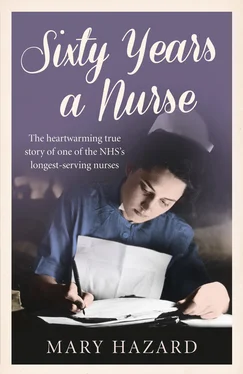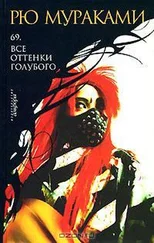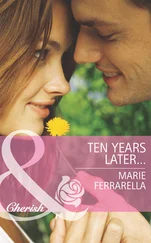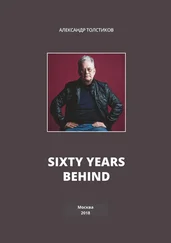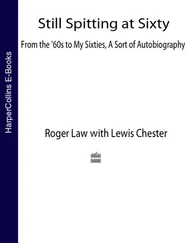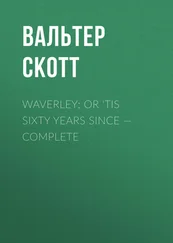Another day, when I was about eleven, it was my turn to go and fetch the newly baked bread from the shop across the road. We had these large pan loaves and I loved the smell of freshly baked bread. Anyway, I couldn’t resist, despite my mother warning me, ‘If you eat that bread, I’ll give you a bloody good hiding.’ But the bread was not wrapped up, it was so lovely and fresh, so tempting and warm, and I tore off the end and gnawed it greedily on my way back home and up the garden path. When I got there, I knew I would be in trouble. My mother was very strong-willed, and she would hit me with whatever came to hand. Knowing this I popped the loaf in the porch and ran down the garden, out of harm’s way. I thought, ‘God, I’m going to get it now.’ However, I then heard ‘Mary, yer tea’s ready,’ and, being me, I thought it was all right and she’d not noticed. However, when I rushed in the front door I was immediately met by a blow to the head – with the loaf of bread. I tried to get away but she was shouting ‘Mary, get in here, you evil little child,’ and was hitting me hard. She got me in the eye. ‘That’ll teach you not to do this again,’ she shouted. ‘We’ve got to eat this bread.’ So I ran outside, crying bitterly, and I found Ivor, our dog, and sat on the wall outside. He came and sat with me, so I lifted up his long furry ear, and blubbed into it, ‘I hate her, I hate her,’ very dramatically: my little heart was breaking. Then I saw my dad coming up the road. My saviour! Ivor would sense him coming and would go mad, wagging his tail and barking. So I was rubbing my eye all the time, pinching the skin and being vicious, making it all the colours of the rainbow. When he got out the car I went crying to him. He used to call me ‘Moll’, and he asked, ‘What’s the matter, little Moll?’ and I replied pathetically, ‘Look what she’s done to me. She hit me with a loaf of bread, all for nothing.’ I put on a good show, and he lifted me up and walked into the house. I remember his Anthony Eden hat (a Homburg), worn at a rakish tilt, which he tipped up with his thumb as he said to my mother, ‘Agnes, can you not control your children? Do you have to maim them?’ So with that she got a dishcloth and threw it at him.
Then she wouldn’t talk to him at all, and we all seven of us sat round the big square scrubbed wooden kitchen table in total silence (sometimes one of us, in disgrace, would sit at mother’s sewing machine to eat). Today, it was me in the doghouse, obviously. She wouldn’t talk to me either, as I was the ‘evil trouble-maker’. As she dished out she’d say things like, ‘Betty, pass the salt to yer father,’ or ‘Will you ask yer father what he wants on his plate.’ And then my father would say to Betty, ‘Can you tell your mother the dinner was rotten.’ I would also be sent to Coventry by my sisters, who blamed me for all the family trouble – so I would be in agony as well. All this would go on for at least a couple of weeks, until one of my big sisters would slap her cutlery down on the table and say in front of my parents, ‘For God’s sake, stop it, the pair of you!’ And all the while I’d be sitting there, with my head down, feeling like I was all the cause of the trouble – which, of course, I was.
Then they’d make up and it would all be OK again. They had their traditions: once a year my parents would dress up and go to the policemen’s ball or county farmers’ ball together and have a grand old time. Father would also go out to the pub every night at nine o’clock sharp. McPhelan’s, it was. My mother would get grumpy, but my father went, regular as clockwork, to meet his five handsome brothers, also known as the ‘terrible five’ locally, who would have pints and whiskeys, smoke smelly Passing Cloud cigarettes, and talk and plot politics late into the night. My mother would say to him, ‘If I was dead in my bed, you’d still go to McPhelan’s,’ which was true, probably. Meanwhile, at home, she would be bottling fruit, making jam, doing sewing, knitting or crocheting, or giving us ‘question time’ round the table. She would be asking where Finland was on the map, or setting us tests. I learned more from her about geography and history than I did eventually at school. Mother was also great at playing cards and teaching us games. We all had to play a musical instrument (mine was the piano), and we’d put on little operettas, with all the costumes and everything, which my mother would run up beautifully.
My father also liked pheasant and grouse shooting, and he’d go out with his shotgun folded under his arm in his tweed jacket and big boots. He used to hang the smelly old dead birds up in the shed afterwards; I’d see all the blood running down into dark pools on the floor, and I’d hate it. My mother used to pluck them, and we used to eat them (there was loads of shot to pick out). One time he shot a cock pheasant and the feathers were absolutely beautiful. He had the bird stuffed and it would sit on top of the old piano that we all learned on, and my mother put the long tail feathers in her hats. However, my father hated having to go and ask for permission to shoot up at the big local estate, which used to be owned by the Duke of St Albans. ‘It galls me to have to go cap in hand and get permission from those bastards. I don’t see why I have to get permission from the bloody English to shoot on our own land.’ There was a lot of animosity towards the English in Clonmel, going back in history to a particularly terrible siege in 1650, with Cromwell massacring the locals willy-nilly. They found the bodies of mothers with babes in arms, and all sorts, in a mass grave, which caused a huge stir locally once the details were revealed in the 1950s. In his youth my father had been a fighter for Ireland’s freedom, and he’d tell how the youths would get the Black and Tans and push them up against doors with their pitchforks and worse. I loved to hear these stories; they were thrilling and my father was a wonderful talker.
For instance, he told me that he was in the IRA as a young man, and he had a little silver gun, a revolver, which he kept down his sock. He said he was one of Michael Collins’s men. He would tell wonderful stories, about men in Cork and the IRA, during the 1914–18 war and the twenties, which left me spellbound. He told me about escorting the Black and Tans out of prison. One day he was walking down a lane with my mother, hand in hand, when they were courting, and a ‘Peeler’ (an English policeman) jumped out of the bushes and confronted him on the road. My father said the Peeler made him strip down to his combinations (old-fashioned long-johns), and then he searched him, which was all done in front of my mother. It was hugely embarrassing for my mother, humiliating for my father, and then it all got ugly so she ran away in fear. When my father was bending down to undo his boot laces, he took out his little silver gun from his sock and shot the Peeler dead. The local men hid the body and it was an ‘unsolved crime’. He was later decorated by the President of Ireland for shooting the policeman. When he died he was buried with full military honours, with the IRA flag draped over his coffin and shots fired over it. He was a hero in many people’s eyes, including mine.
At the age of four I was sent to the Nuns of the Presentation Convent in Clonmel. They lived in a huge, gloomy grey-stone place, with a cloister in the middle in Irish Town, an outer part of Clonmel. I hated and detested it right from the very start until I finally left for England, at seventeen. All four of us sisters were sent to the Presentation Nuns, while my brother Peter Joseph, who everyone called P-J, went to the Christian Brothers. The nuns were cruel and vicious, and we were ‘murdered’ (by which I mean belted and walloped) regularly by them; and sadly P-J was equally cruelly treated at his school. Worst of all was Sister Margaret, who was tall, gaunt, with glasses, and who had a ghostly aura about her. She was particularly horrible, especially to me, or so it seemed. She was the Devil incarnate, and I used to come home crying to my mother after a bad day at school saying, ‘I’m going to kill her,’ and my mother would snap at me, ‘You mustn’t talk like that. You should try to be patient – why do you think she’s a nun?’ And I’d say, ‘I don’t know, but I guess her family hates her.’ And my mother would ‘tut’ and then say, ‘Nobody loves her, she has no family probably,’ trying to make me feel sorry for her (which I didn’t), as she always seemed to have it in for me, unfairly. We all knew that nuns were often farmers’ daughters, who were shoved out into a convent when there were too many to marry off or feed and clothe – so they solved the problem by hastening them into the folds of the Church.
Читать дальше
